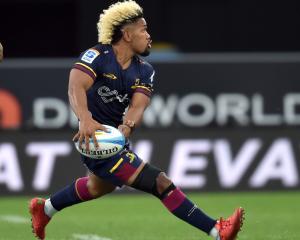The NZRU are about to enter into a brave new world with plans to sell off the licences to four of the five Super Rugby franchises.
The national body today issued a public invitation for expressions of interest to manage and operate the Blues, Chiefs, Hurricanes and Crusaders.
"For now we have agreed to allow the Highlanders to stand aside from the EOI process as they are already some way down the track with exploring other alternatives which are commercially sensitive," NZRU chief executive Steve Tew said today.
Expressions of interest will be received up to March 9, and formal agreements reached by the end of June 2012, with a view to taking over for the 2013 season.
It was decided in consultation with the franchise chiefs that the current model is broken and new ideas and capital were needed to reinvigorate the brands. Until now, the NZRU has kept a tight hold on the reins in order to create a level playing field for the franchises.
They would continue to hold the intellectual property rights of each brand and be responsible for contracting players and coaches. Additionally, all costs currently met centrally by the NZRU or Sanzar would be retained.
But there's an acceptance something needs to change and the NZRU are comfortable with either local or foreign ownership of the licences.
"We think it's a very exciting opportunity for rugby in this country,'' Mr Tew said. "The aim of this exercise is to reinvigorate the franchise model, which we believe is now necessary, [and to] bring some fresh ideas to the table.
"We've got an opportunity on the back of Rugby World Cup, where the game is sitting in a good space, to launch into a new era. We also accept some fresh capital into the game will be very helpful in these financial times that continue to be pretty challenging for anybody who's in the entertainment space, as we are.''
It's expected some provincial unions will be interested in obtaining the licence with Canterbury understood to be keen on taking over the Crusaders and any licence holder would manage the team both on and off the field and oversee marketing.
The NZRU are comfortable if some franchises remain in their control for the time being until a suitable licence holder was found.
"It's the opportunity to be involved in one of the greatest rugby competitions in the world,'' Tew said.
"[There's] a chance for them to, if they are from the region these franchises are currently based, to anchor them there and make sure there's no threat to them ever moving.
"As the guys who have gone in and backed the Phoenix have done, [it's a chance to] be part of the city's landscape going forward. And ultimately, if the people that come forward believe they can do so, there's money to be made. It's just in the current environment we are not over-promising.''
Tew said prospective licence holders would need "seven figure numbers'' in the bank as backup and in the past the franchises had made considerable profits.
The granting of licences would initially be for three years, to marry up with the current Sanzar agreement, but the NZRU are keen to make these longer term in time.
"We are in effect testing the market for the first time in this country,'' Tew said. "We are looking to go beyond rugby and we are quite happy to go beyond the borders of New Zealand. We'll make it very clear, though, these teams will be New Zealand-owned and will continue to play in our competition in New Zealand.
"It's possible we'll partner up with someone offshore, but the team and its interests will remain in this country.
"We're unsure about what response we'll get. The bookend is we won't get any interest and we'll have to think of another way of dealing with this, or we may get a number of very good quality applicants. The current international economic climate is not going to change. We have to adapt to it. That has been one of the drivers of us doing things differently.''









